These steps will allow you to determine the length of the curtains as accurately as possible.
Iron the curtains with an iron and hang them on the cornice where their permanent place will be. However, take into account the quality of fabrics: velour, velvet and plush is better not to iron at all, and use a minimum temperature for silk.
Let the curtains hang for two or three days. During this time, the fabric will straighten even more under its own weight, which means that it will be possible to determine the length of the canvas more accurately.
Curtains can be slightly higher or slightly lower than the window sill, do not reach the floor a couple of centimeters, touch it or even lie on it. Or maybe your interior implies a completely different length. Which one to choose is a matter of taste.
Please note that it is necessary to determine the length of the curtains only when the cornice and the fasteners on which they will hang are already installed. The lower part of the hooks or rings will be the starting point of the measurement. Move down from it and count the desired length using a tape measure. If the tape measure is too short, you can first measure the distance from the mount to the window sill, then from the window sill to the floor, and then add two values.
The resulting number will be the length of the canvas to the floor. If you want the curtains to be higher or lower, subtract or add the required number of centimeters to this indicator. It may be difficult for you to decide or you are afraid of making a mistake — then take away from the length of 1.5 cm: such curtains will look good in any interior.
Fold the curtain in half so that the front side is at the top, place it on the floor and smooth out all the folds with your hands. At the top and along the edges, secure the fabric with clips or pins.
On the one hand, measure the desired length, moving from top to bottom, make a mark on the fabric with a small piece of soap or a piece of soap. Step back from it another 15 cm, which will be useful for bending the edge, and make another mark. The length for bending may be smaller if the curtains are not initially too long, for example, 10 cm. Or equal the distance from the first mark to the edge of the fabric.
Make the same marks on the other side. And then connect them with straight lines using a ruler. If necessary, take sharp scissors and cut off the excess fabric along the bottom line.
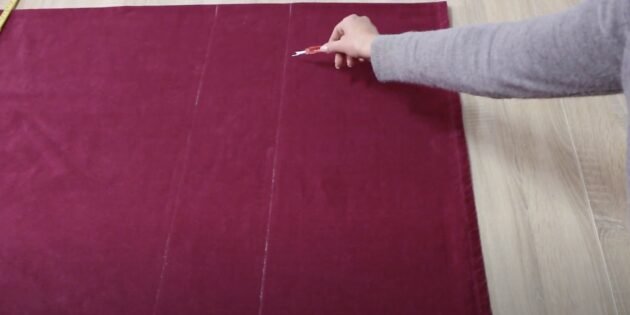
Draw another auxiliary line in the middle of the allowance. Make the same marking on the other side of the curtain.
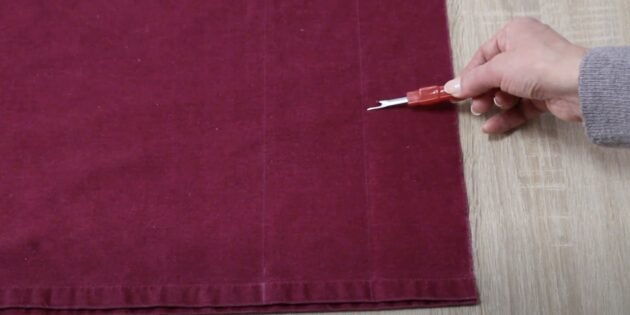
Fold the curtain along the lines on the wrong side. You should get a double gateway. Iron the folds.
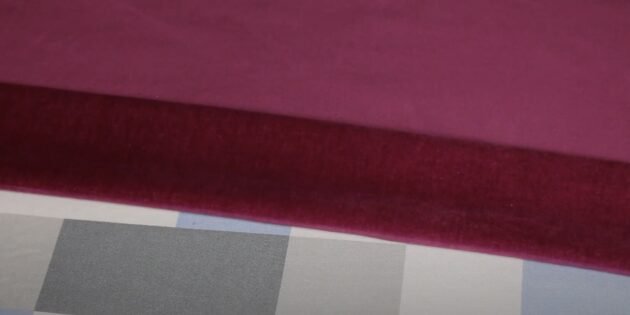
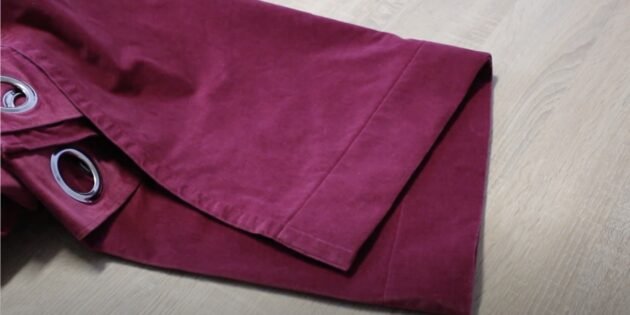
Curtains hemmed in this way will look neat. An ordinary sewing machine will do without many special functions. It will be possible to make a simple seam, even if you have not completed the cutting and sewing courses.
Step back from the edge of the bend 1.5–2 cm and stitch the curtain on the sewing machine with a straight seam. At the beginning and at the end of the line, make the clips.
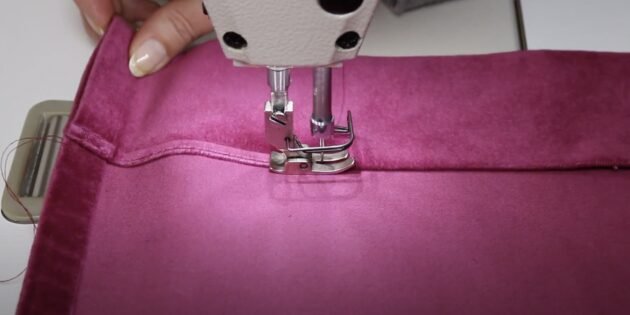
Also sew the hem along the edges. Make a line on the front side, retreating from the edge of 1.5–2 cm or the distance at which the factory stitch was made on the side.
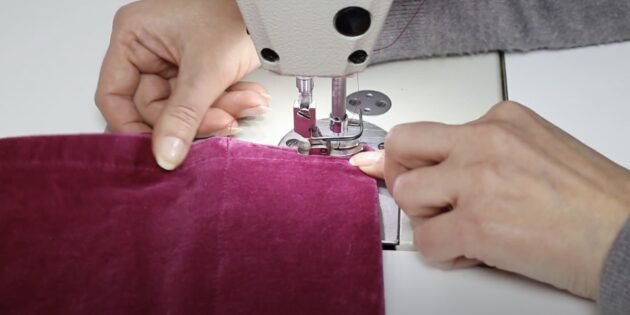
Don't forget to trim the remaining threads.
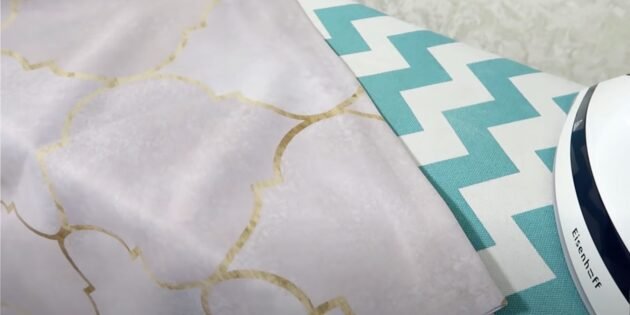
For this method, you will need a special adhesive tape, which is also called a spider web. You can find one in clothing stores. It will help to shorten the curtains if you do not have sewing experience or you simply do not want to spend a lot of time and effort.
Place the ribbon on the wrong side of the curtain above the line that marks the desired length. Iron it with an iron, and then remove the paper base.
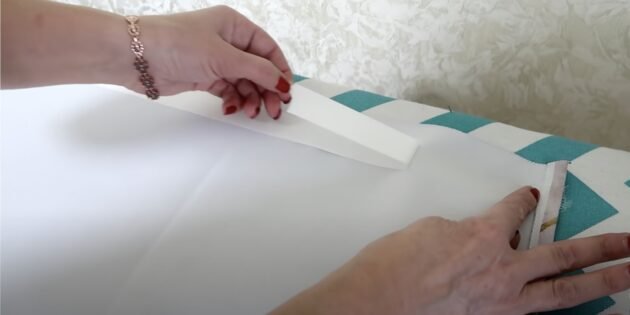
Make a double doorway so that it covers the adhesive tape.
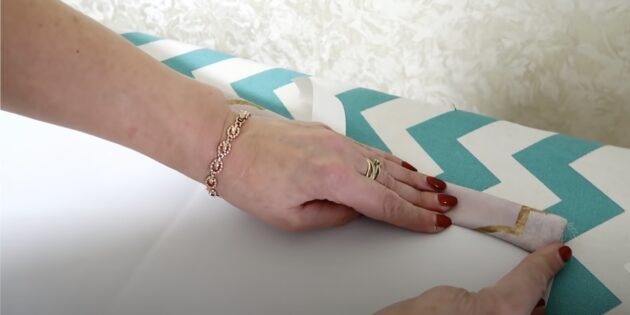
Carefully iron the doorway with an iron so that the glue melts and securely fixes the fabric. Turn the curtain over and walk the iron along the doorway from the front side. After these simple manipulations, you can hang a curtain on the window.
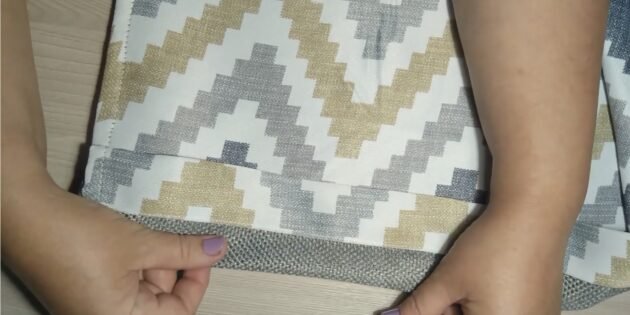
For this method, you will need a thin needle, threads that match the color of the curtains, and a lot of patience, because the process will take longer than sewing on a typewriter or attaching fabric to adhesive tape.
Just as in the previous versions, a double doorway is made at the bottom of the curtain in order to achieve the desired length of the product. For the convenience of further work, do not forget to iron it with an iron.
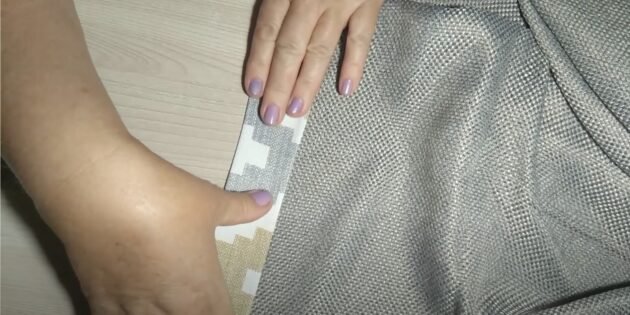
The curtain needs to be stitched on the wrong side, in the place where the upper part of the bend comes into contact with the main canvas. Make the seam with oblique stitches, first grabbing the fabric of the main fabric with a needle, and then the fabric of the turnout, as shown in the video.
In this way, sew the doorway to the main canvas along the entire length. If you try to pry a little bit of the main canvas with a needle, the seam on the front side will turn out almost imperceptible.